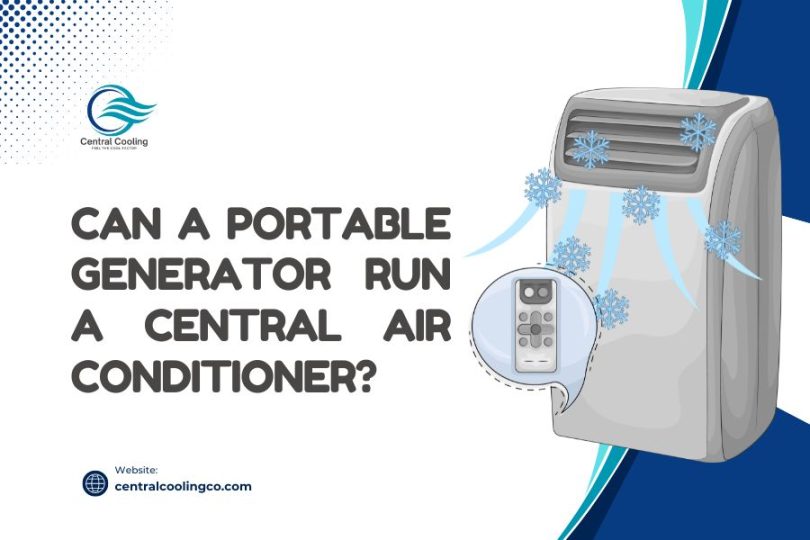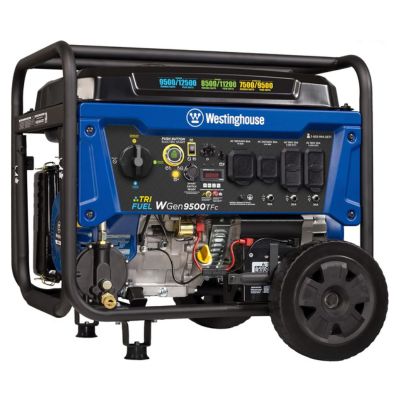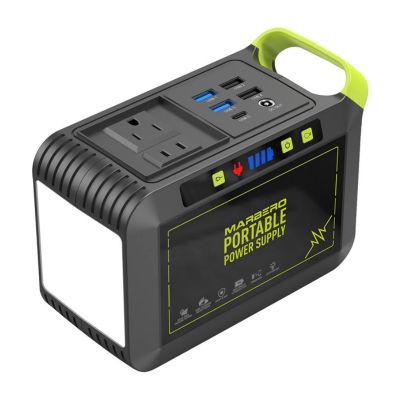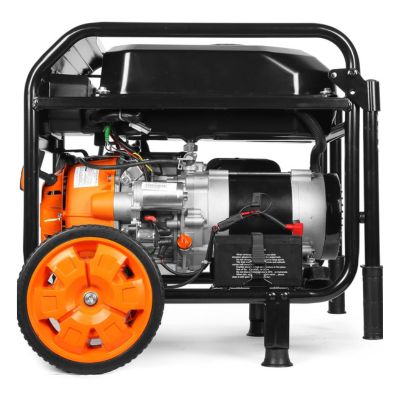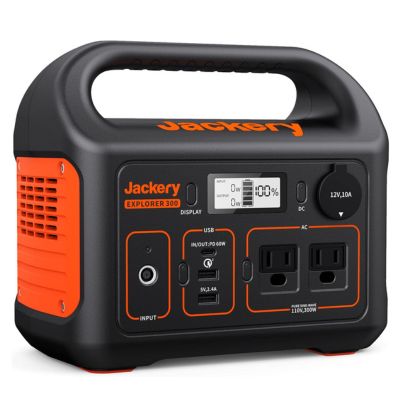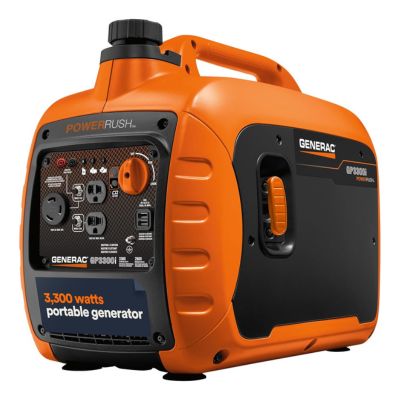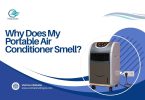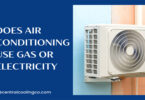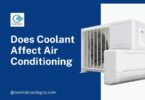Central air conditioning is an effective means of maintaining a comfortable indoor temperature. However, during situations such as storm surges or local power failures, the utility system may become unreliable. While home generators can ensure the operation of water pumps and other essential appliances, the question arises: Can a Portable Generator Run a Central Air Conditioner? Given the substantial energy consumption of central air conditioning systems, this article explores whether portable generators can adequately power them, aiming to provide a comprehensive answer.
Portable generators can power central air conditioners, offering more than just the capability to run small appliances. They can sustain your home’s central air conditioning system during power outages, provided you choose a generator with sufficient power to run the air conditioner and other critical systems connected to it. The wattage of a generator determines its output, and it is essential to select one with enough capacity to handle the AC unit’s starting and running power requirements. For instance, a generator with at least 10,000 watts of surge power is recommended for a 2-ton (24,000 BTU) air conditioner to ensure reliable performance and avoid potential damage.
Using Portable Generators To Power Central Air Conditioners
Portable generators can power central air conditioners, offering more than just the capability to run small appliances. They can sustain your home’s central air conditioning system during power outages, provided you choose a generator with sufficient power to run the air conditioner and other critical systems connected to it.
How Does A Portable Generator Work To Power A Central Air Conditioner?
During power outages, portable generators are commonly used to supply electricity to small, low-power devices. Their primary purpose is to keep essential home systems operational during an electrical outage. Generators come in various types, mainly by their power generation capacity and fuel type. The wattage of a generator determines its output, and the general rule is to choose a generator with slightly higher wattage than what the air conditioner requires to ensure reliable performance.
Determining The Right Generator Size
Westinghouse 12500W Tri-Fuel Generator
- 12500 Peak Watts
- Tri-Fuel Capability
- Remote Start Included
- Transfer Switch Ready
- 457cc Westinghouse Engine
MARBERO 88Wh Portable Generator Power Station
- Rapid charging capability
- Compact and lightweight
- Versatile multi-output ports
- Powerful flashlight function
WEN 5600-Watt Portable Generator
- 5600 starting watts
- Electric start
- CO Shutdown Sensor
- 4.3-gallon gas tank
- Multiple outlet options
Jackery Explorer 300 Portable Solar Generator
- Fast recharge capability
- Lightweight at 7.1 lbs
- Multiple outlet options
- Solar panel compatibility
- Versatile charging ports
Generac 3300-Watt Gas Inverter Generator
- Portable power solution
- Fuel-efficient,
- Quiet operation
- LED indicators for status
- Dual USB ports
The wattage requirements of your cooling system dictate the generator size needed to power the central air conditioner. While the size of a generator can indicate its output, adhering to the proper wattage requirements based on your specific air conditioning unit is crucial. Overloading the generator can lead to malfunctions, damage to the cooling system, or even the generator catching fire.
For example, for a 2-ton (24,000 BTU) air conditioner, it is recommended to use a generator that can handle at least 10,000 watts of surge power. It is advisable to err on the side of caution and choose a generator with higher capacity to avoid potential harm to your central air conditioning system.
For more information on selecting the right generator size based on your specific central air conditioner’s power requirements, visit the how-much-electricity-does-a-central-air-conditioner-use resource.
Power Consumption Of Central Air Conditioning Systems
Several factors influence the power consumption of a central air conditioner:
- Cooling Capacity (BTU Rating): The BTU rating determines how much cooling power the unit provides. Larger spaces require units with higher BTU ratings, which consume more energy.
- Starting vs. Running Power: Central AC units require more power to start up (starting watts) than to run continuously (running watts). The starting power surge can be two to three times the running power.
- Efficiency Ratings: Newer units with higher SEER (Seasonal Energy Efficiency Ratio) ratings are more energy-efficient, consuming less power for the same cooling output.
A typical central air conditioner might use around 3,500 watts for continuous operation. When selecting a portable generator, aim for a power output accommodating the starting surge and continuous running needs.
Benefits of Using a Portable Generator to Power Your Central Air Conditioner
Using a portable generator to power your central air conditioner during a power outage offers several benefits:
- Comfort: Maintaining a comfortable indoor temperature is crucial, especially during extreme weather conditions. A portable generator ensures your central air conditioner can keep your home cool during summer heat waves or warm during winter cold snaps.
- Health and Safety: For individuals with health conditions exacerbated by extreme temperatures, having a reliable power source for air conditioning can be life-saving.
- Preservation of Food and Medications: Keeping your home cool can help preserve food and medications that require refrigeration, reducing waste and preventing health risks.
- Convenience: A portable generator provides a temporary solution until power is restored, minimizing disruption to your daily life and allowing you to continue using essential appliances and electronics.
Selecting The Right Generator For Central Air Conditioner
When selecting a portable generator for your central air conditioner, consider the following factors:
- Power Output: Choose a generator with sufficient wattage to handle your AC unit’s starting and running power requirements and other essential appliances.
- Fuel Type: Consider the fuel the generator uses (gasoline, propane, or diesel) and choose one that is readily available and convenient for you to store.
- Portability: Ensure the generator is easy to move and set up. Portable generators come with wheels and handles for easy transport.
- Noise Level: Some generators operate more quietly than others. If noise is a concern, look for models with lower decibel ratings or additional noise-reducing features.
- Cost: Balance the cost of the generator with its features and capabilities. While more expensive models may offer better performance and durability, ensure it fits your budget.
Practical Considerations For Running A Central Air Conditioner On A Portable Generator
Before deciding to use a portable generator for your central air conditioner, consider these practical aspects:
- Power Management: Ensure the generator can handle other essential household loads besides the AC. This may include refrigerators, lights, and other appliances. Load management is crucial to prevent overloading the generator.
- Generator Quality: Invest in a high-quality generator with reliable performance and robust surge capabilities. Some models have advanced features like automatic voltage regulation (AVR) to handle power surges better.
- Connection Setup: Properly connect the generator to your home’s electrical system, ideally through a transfer switch. This ensures safe and efficient power distribution and prevents backfeeding, which can be dangerous.
- Fuel Supply: Portable generators typically run on gasoline, propane, or diesel. Ensure a sufficient and safe fuel supply, as running an AC unit can consume significant fuel over extended periods.
- Environmental Conditions: When AC use is highest, operating a generator in hot weather can affect its efficiency and fuel consumption. Ensure adequate ventilation and cooling for the generator.
Maintenance And Safety Tips For Running A Central Air Conditioner On A Portable Generator
When using a portable generator to power your central air conditioner, it is crucial to adhere to maintenance and safety guidelines to ensure optimal performance and prevent hazards.
- Regular Maintenance: Regularly inspect and maintain your generator according to the manufacturer’s recommendations. This includes changing the oil, replacing air filters, and checking spark plugs. Proper maintenance ensures the generator operates efficiently and prolongs its lifespan.
- Safe Operation: Always operate the generator in a well-ventilated area to prevent carbon monoxide buildup, which can be fatal. Never run a generator indoors or in enclosed garages or basements.
- Proper Fuel Storage: Store fuel in approved containers safely, away from living areas and heat sources. Ensure you have enough fuel for extended power outages, but avoid stockpiling excessive amounts that could pose a safety risk.
- Electrical Safety: Use heavy-duty, outdoor-rated extension cords to connect appliances to the generator. Ensure cords are free of cuts or tears and have a grounding prong. If using a transfer switch, have it installed by a qualified electrician to ensure safe and efficient power transfer to your home’s electrical system?
- Surge Protection: When switching to generator power, use surge protectors to protect sensitive electronics from power surges. Some generators come with built-in surge protection features.
- Emergency Preparedness: Keep a detailed emergency plan that includes generator operation, fuel storage, and safety procedures. Ensure all household members are familiar with this plan and know how to operate the generator safely.
Frequently Asked Questions
Can A 6500-Watt Generator Run A Central Air Conditioner?
Yes, a 6500-watt generator is capable of powering a central air conditioner. Typically, any space requiring cooling and air circulation will require more than 2,000 watts of electrical output per hour.
How Long Can A Portable Generator Run My Central Air Conditioner Continuously?
The runtime depends on the generator’s fuel tank size, fuel efficiency, and the load (including other appliances)—plan for refueling intervals to maintain continuous operation during extended power outages.
What Happens If I Use A Generator With Insufficient Wattage For My Air Conditioner?
Using a generator with insufficient wattage can lead to the AC unit not starting up properly or shutting down unexpectedly. It may also damage both the generator and the air conditioning system.
Conclusion
In conclusion, a portable generator can effectively power a central air conditioner during power outages, providing comfort and safety in times of need. By selecting the right generator, following proper maintenance and safety guidelines, and planning, you can ensure that your home remains a cool and comfortable refuge even in the face of unexpected challenges. Investing in a reliable portable generator is a proactive step towards preparedness and resilience in maintaining your household’s comfort and functionality during power disruptions.
Disclosure: We may get commissions for purchases made through links in this post.

